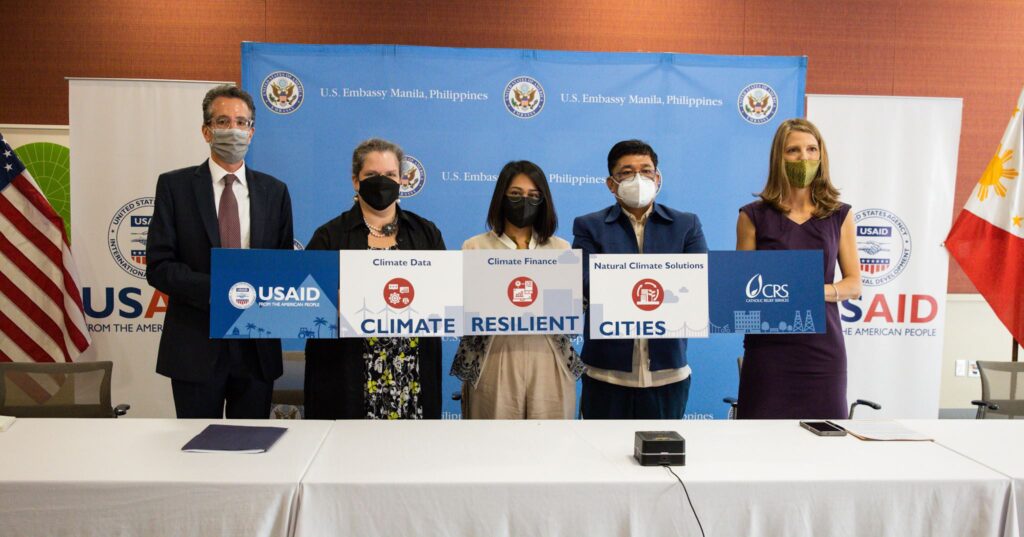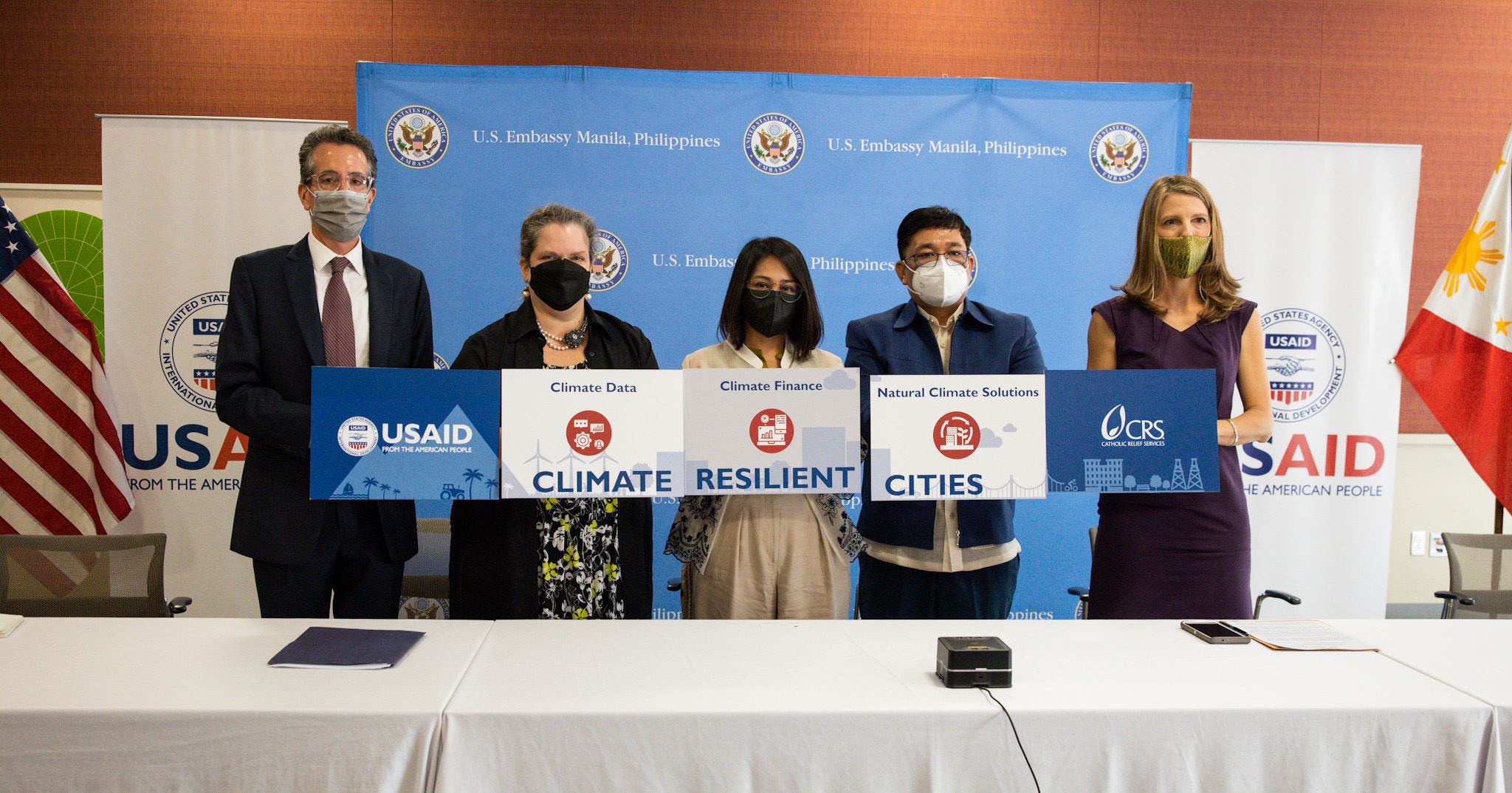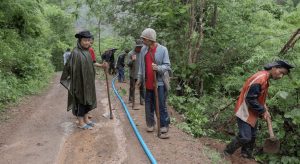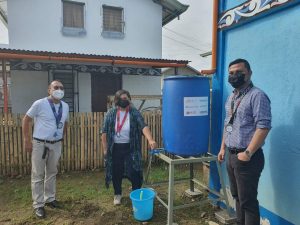On March 10, the United States government, through the US Agency for International Development (USAID), formally launched a new project to build climate resilience in the Philippines, one of the world’s most disaster-prone countries.

(From left) USAID Philippines Mission Director Ryan Washburn and U.S. Embassy in the Philippines Chargé d’Affaires ad interim Heather Variava join Finance Assistant Secretary Paola Alvarez, Philippine Climate Change Commission Commissioner Albert dela Cruz, and Catholic Relief Services Country Representative Karen Janes Ungar at the formal launch of the Php750-million ($15 million) Climate Resilient Cities project.
Initially announced during the Indo-Pacific Business Forum in October 2021, the five-year, Php750-million ($15 million) Climate Resilient Cities project will help Philippine cities adapt to, mitigate, and endure the impacts of climate change by increasing their access to climate financing and tools to build resilience. Through this project, the U.S. government will support local government units and other stakeholders to better understand, use, and disseminate climate information to local communities.
“Climate change is impacting people, communities, and nations all around the world,” said U.S. Embassy in the Philippines Chargé d’Affaires ad interim Heather Variava. “We believe that responding to the climate crisis is a shared mission between the U.S. and Philippine governments. We look forward to our collaboration with key stakeholders to ensure that resilience is built into the fabric of cities in the Philippines.”
The project will also help cities and nongovernment organizations access climate financing to increase community resilience and contribute to communities’ economic and social development, as well as support natural climate solutions that increase cities’ resilience to climate change impacts.
“Climate change is a serious threat and a daily reality for the Philippines. For us, reversing the effects of climate change is a matter of survival. We are determined to move ahead with the implementation of actual projects on the ground to be able to meet our commitments,” said Finance Secretary Carlos Dominguez, President Rodrigo Duterte’s official representative in the Climate Change Commission.
The Philippines has committed to a projected greenhouse gas emission reduction and avoidance of 75 percent from 2020 to 2030 for the agriculture, wastes, industry, transport, and energy sectors.
“We thank the U.S. government for this timely initiative that will help arm our local communities with the necessary knowledge to enable them to formulate doable and practical climate adaptation and mitigation projects on the ground,” said Secretary Dominguez.
Working with USAID to implement the Climate Resilient Cities project is Catholic Relief Services (CRS), together with its consortium partners including the University of the Philippines Resilience Institute, Philippine Disaster Resilience Foundation, Conservation International, and Rocky Mountain Institute.
“Our strong partnership with Philippine communities allows us to understand their needs and ensure that public-private climate change adaptation efforts are tailored to their unique context and needs,” said CRS Philippines Country Representative Karen Janes Ungar.
The project supports the Philippine government’s National Climate Change Action Plan, Nationally Determined Contributions, and National Climate Change and Disaster Risk Management Roadmap, and advances the U.S. government’s goal of tackling the climate crisis around the world. Climate Resilient Cities will also receive support from the government of the Republic of Korea, through the Korea International Cooperation Agency, as part of a joint partnership between the U.S. and Korean governments.
Article and photo by US Embassy in the Philippines



